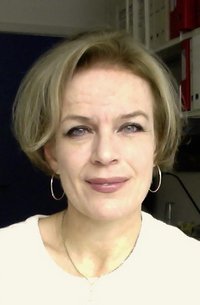- Education
-
Research
Current research
Talent
-
Collaboration
Businesses
Government agencies and institutions
Alumni
-
About AU
Organisation
Job at AU
Referring to the path to the extraordinary, a Danish proverb says: ‘Crawl out on to the branch; that’s where all the best fruit is hanging’. The question is whether Health is good enough at celebrating and supporting those researchers and students who make a special effort? This was discussed by the Academic Council at the final meeting of 2017.
2017.12.22 |

Chair of the Academic Council, Helle Prætorius Øhrwald, concluded from the discussion in the council that the faculty management team should reconsider the procedure for prize essays.

According to Dean Lars Bo Nielsen, the higher doctoral degree is the university's gold standard which Health must maintain and qualify with an academically credible and independent assessment.
The difference between the ordinary and the extraordinary lies in the word 'extra'. A relevant question could be whether we at Health are we good enough to encourage and acknowledge the little but crucial difference hidden in those six extra letters?
The question was a theme of the Academic Council’s final meeting of the year, which also discussed higher doctoral dissertations, PhD degrees and prize essays, among other things. As the council's chairman, Helle Prætorius Øhrwald, put it in the introductory information about the meeting: "Every PhD defence is something quite special. And when there is something extraordinary to celebrate, we must remember to do so."
One of the extraordinary items on the academic council’s agenda for the meeting was a new procedure and division of responsibilities for the way in which doctoral dissertations submitted to Health for defence are handled.
According to Dean Lars Bo Nielsen, the higher doctoral degree is the university's gold standard which Health must maintain and qualify with an academically credible and independent assessment. For this reason, a new higher doctoral dissertation committee will in future appoint the assessment committee in connection with higher doctoral dissertations. This has been adopted by the Dean's Office.
The higher doctoral dissertation committee replaces the existing less formal practice whereby approval takes place among the department management team, after which the Dean adds his signature. The first higher doctoral dissertation committee was appointed at the Academic Council’s meeting. It is headed by Vice-dean Lise Wogensen and comprises professors Helle Prætorius Øhrwald, Vibeke Hjortdal, Jørgen Frøkiær and Charlotte Delmar.
At the meeting, the Academic Council discussed how the popular PhD degree, which is characterised by being readily understandable in an international context, has pushed the higher doctoral dissertation into the background. The council finds this regrettable as the two degrees are not comparable.
While the PhD degree is a research programme, the higher doctoral degree “constitutes an acknowledgement of the author’s considerable academic insight and maturity, and of the fact that the author’s dissertation constitutes significant progress in the academic area in question,” as the ministerial order states.
"The higher doctoral degree has been there for centuries, and it would be a shame to abolish it just because other countries are not familiar with it and do not understand it. I think that we need to focus on its value and do the opposite – promote and celebrate it," said Dean Lars Bo Nielsen when he explained the considerations behind the decision, which has broad support in the Academic Council.
The council also discussed the need to focus more on the actual value of higher doctoral dissertations in connection with qualifications to university positions. Chair of the Academic Council, Helle Prætorius Øhrwald, pointed out that the faculty management team must look at any possible distortion between Danish and international applicants for associate professorships and professorships.
"A dissertation cannot be an additional requirement that only applies to Danish applicants. But it could be possible to use a higher doctoral dissertation as part of the evaluation criteria for tenure track appointments," suggested Helle Prætorius Øhrwald.
In addition to higher doctoral dissertations, the Academic Council was also interested in how the faculty makes use of prize essays – which are extracurricular assignments – as a tool to highlight particularly impressive presentations among the students.
A prize essay is assessed as either 'accessit' or gold medal with the university’s seal and laurel wreath affixed and the inscription 'Solidum petit in profundis' (We seek solid ground in the depths). In recent years, more prize essays have been announced at Health with a view to motivating particularly talented and hard-working students
However, prize essays are also associated with certain dilemmas, such as the lack of fixed guidelines for format, level and assessment. At the meeting, the academic council discussed some of these different issues.
Some members of the Academic Council pointed out that at a time with talent tracks, career tracks and research years, the prize essay has become an anachronism that the faculty of health should avoid. One member of the council raised the issue of how an extra elite initiative among the others already in place is consistent with the fact that twenty per cent of the students indicate they have strong levels of stress in their everyday life.
"From the discussion, I conclude that the academic council encourages the faculty management team to reconsider the procedure for prize essays," said Helle Prætorius as she summed up the debate.
"There is also the possibility of instead highlighting the best research year assignments or Master's thesis, though this will require that a supervisor has the possibility of recommending a particularly excellent student assignment for a gold medal."
The agenda and appendix as well as the resolution minutes from the meeting are available on Health's website (in Danish).
-----------------------------------------------
Academic councils may make statements on all academic issues of substantial relevance to the activities of the university and have a duty to discuss academic matters presented by the rector and others for their consideration. At Health, the council’s tasks are to
The Academic Council comprises representatives of the academic staff, including employed PhD students, and student representatives.
Members of the Academic Council
Order of business for the Academic Council